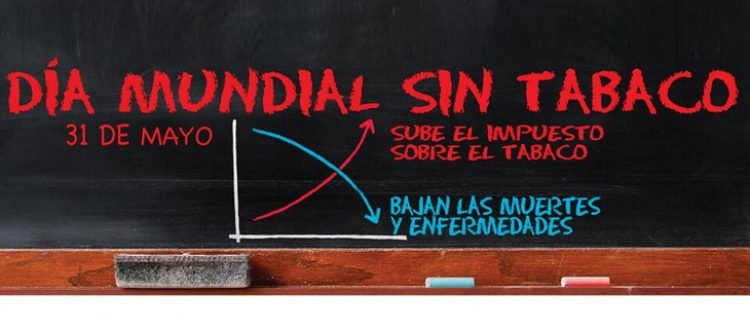Statement for World No Tobacco Day
As part of World No Tobacco Day, which is celebrated every year on the 31st of May, FUNDEPS is sharing a statement signed by various health organizations in order to promote the improvement of tobacco control policies and health protection, particularly in relation to taxation policies.
World No Tobacco Day is promoted by the World Health Organization (WHO) to highlight the health hazards generated by smoking tobacco. According to the WHO, the worldwide tobacco smoking epidemic kills almost 6 million people each year and of those 600,000 people are nonsmokers who die from second hand smoking. Without a change in the regulation framework we will see 8 million tobacco related deaths a year by the year 2030. More than 80% of these preventable deaths will occur among the population of second and third world countries.
According to the Argentinian Minister for Health, the tobacco epidemic affects almost 9,000,000 people in Argentina. The consumption of tobacco is the number one cause of preventable premature deaths, causing more than 40,000 deaths annually. According to the health institute, Instituto de Efectividad Clínica y Sanitaria, the country wastes more than 20,000 million pesos treating diseases caused by tobacco addiction and 6,000 non-smokers die as a result of second hand smoking.
Faced with this situation FUNDEPS emphasises that the protection of health against the tobacco epidemic is a human rights obligation, just as they demonstrate the recommendations made by the Economic, Social and Cultural Rights Committee. Here, in the latest review into the progress made by Argentina in relation to their obligations, the Committee made specific recommendations linked to the control of tobacco and health protection.
This year, 2014, the objective of World No Tobacco Day is to encourage governments to raise taxes. In Argentina, cigarettes are cheaper and more accessible than in the rest of the continent and the world, which is one of the main reasons for the high number of tobacco users in the country.
According to investigations by the Inter-American Heart Foundation in Argentina (Fundación Interamericana del Corazón Argentina) “While by the middle of 2005, buying 100 packets of cigarettes cost 42% of the average Argentine salary but midway through 2013 to buy the same amount of packets only account for 22% of the same average salary”.
Hence, numerous civic society organisations have made a statement which requests “the Argentine State authorities promptly implement of a taxation policy that increases the actual price and steadily reduces the affordability of tobacco products, with the aim of reduce tobacco consumption and improving public health”.
At the same time maintaining the demand for the ratification of the Framework Convention for Tobacco Control (Convenio Marco para el Control del Tabaco), since Argentina is one of the few countries in the region which has not yet ratified this international instrument.
Translated by: Sinead Barnett



